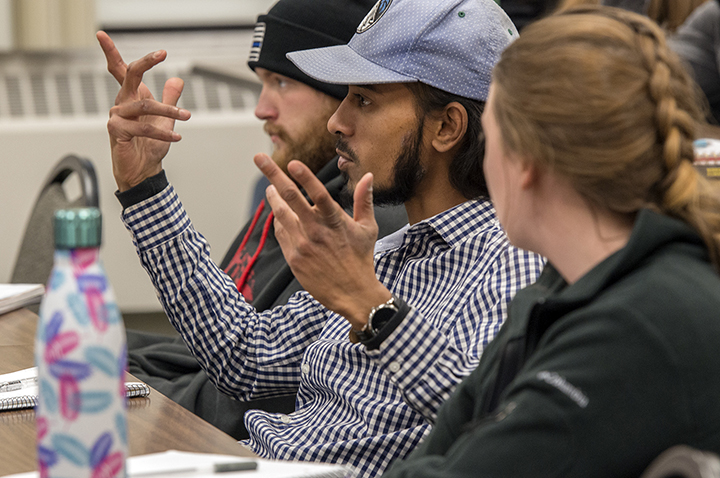
Beginning in the Fall of 2024, all Bemidji State University students must successfully complete a course in BSU’s new Nisidotaading program prior to graduation. The courses, which are meant to help students develop an understanding of Indigenous peoples, cultures and issues, fall into five broad categories — Indigenous history, culture or ways of knowing, contemporary Indigenous issues or Indigenous languages.
Indigenous history courses include examinations of historical forces that have impacted Indigenous groups, either before or following contact with non-Indigenous people. Content can include, but isn’t limited to, Indigenous understanding of these historical forces and narratives through oral or recorded history of Indigenous people or the scholarship of Indigenous academics.
Indigenous culture courses include content on the worldview, cultural values and practices, spiritualities or seasonal cycles of Indigenous people.
Courses which focus on Indigenous ways of knowing may examine or incorporate Indigenous research methodologies as well as traditional processes used by Indigenous people to acquire and process knowledge.
Contemporary Indigenous issues courses could explore elements of modern society which intersect with the lives, traditions and futures of Indigenous nations and communities — elements such as treaties, politics, globalization, media representation and more. Understanding these issues could include oral and written traditions of Indigenous people, the public positions taken by Indigenous governments or communities or the scholarship of Indigenous academic researchers.
Indigenous language courses could examine the grammar, vocabulary, speech or text of traditional languages of Indigenous people, which may include languages beyond those spoken by residents of Minnesota’s 11 Dakota and Ojibwe nations.
